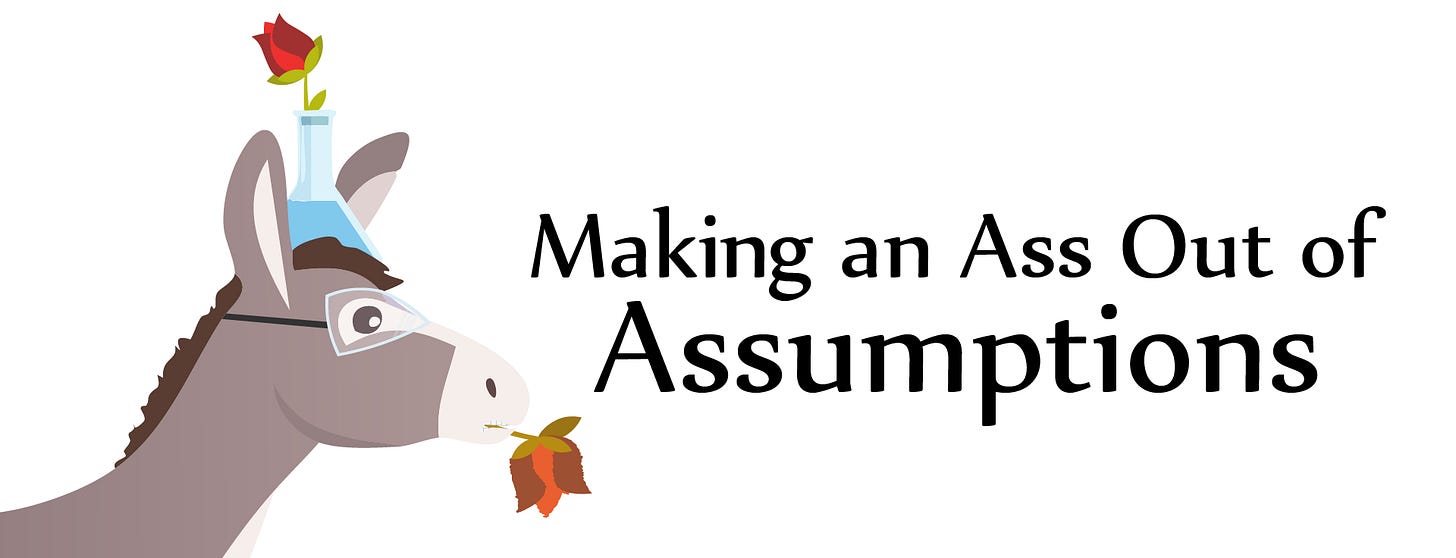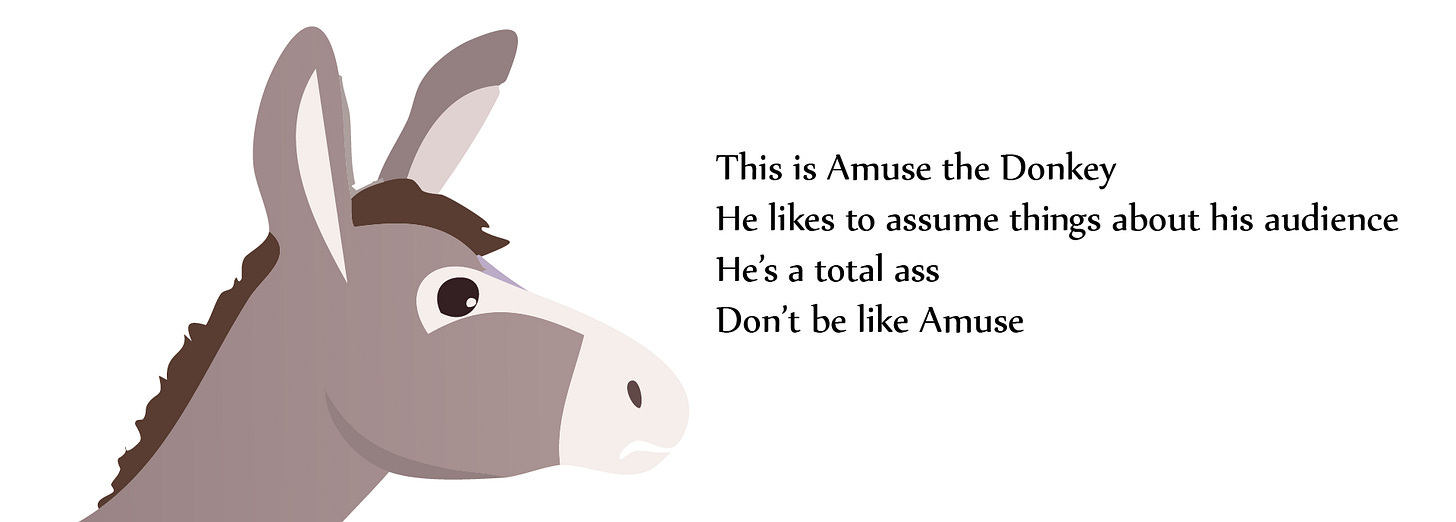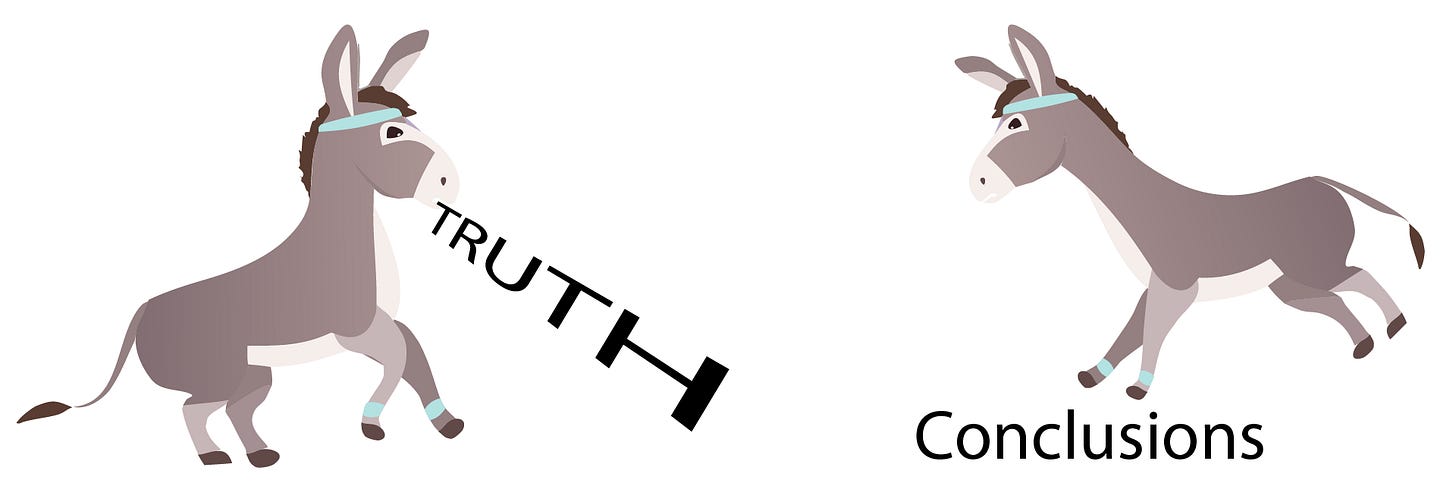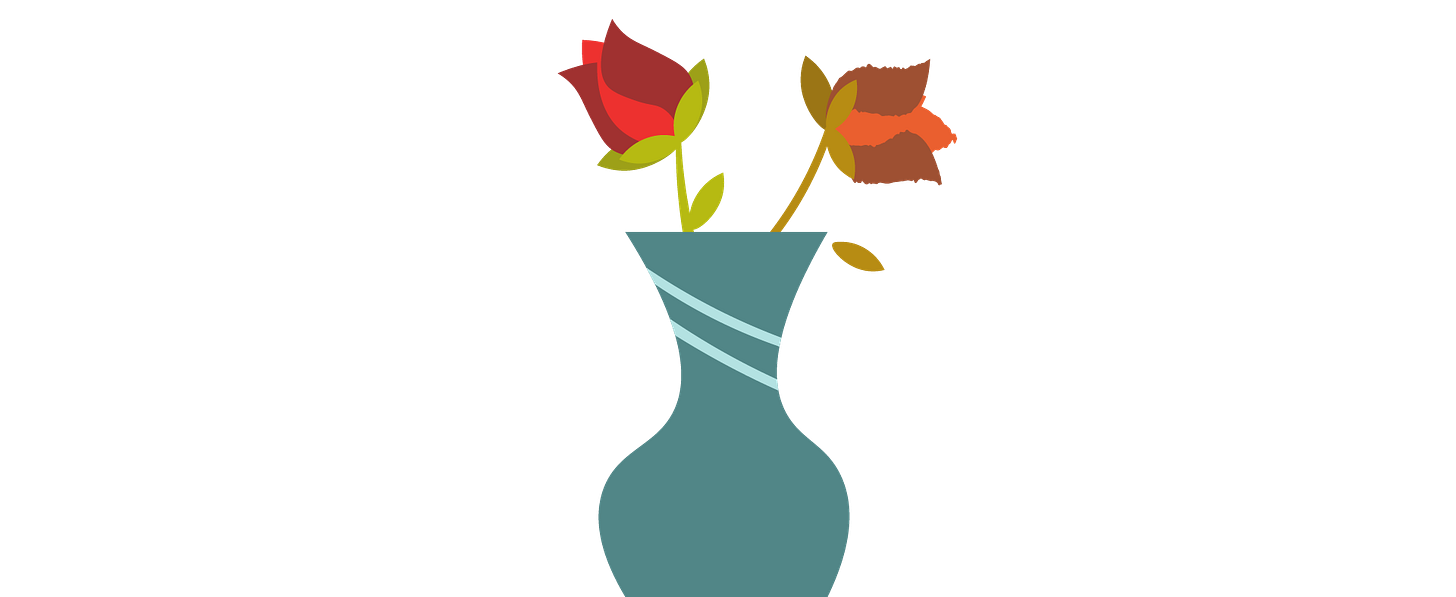Last time I introduced what I’m referring to as the audience development problem facing independent artists. Artists are finding themselves overwhelmed and lost for direction without the resources (money, time, people, strategy) to solve the problems (revenue streams, audience growth, validation) they face. To me, much of this is due to implementing poor audience development strategies based on what they see successful artists & organizations doing. What you see successful artists doing to build an audience is not all there is.
A drastic, fundamental change in process is required for independent artists when it comes to audience development. Before we can introduce the process, we need to frame the base of the issue causing us to implement strategies that aren’t meant for us. It’s time for an open and honest conversation about assumptions.
My 7th & 8th grade math teacher Kent Joseph introduced me to my favorite saying about people who assume; they make an ‘ass’ out of ‘u’ and ‘me’. I think most of us have heard this, given a chuckle, and then admitted that the saying was true. Nothing makes you look more like an ass when you had assumed something and expressed that thought as fact only to find out it was categorically untrue.
An assumption is defined as something taken for granted. It’s a passive word. Little deep thought goes into an assumption, whether because we have little information or we believe something to be true based on conjecture. Basically, an assumption is believing what we see is all there is.
When we see a successful artist in our discipline begin to produce a podcast, it’s an assumption on your part to think that there is demand for a podcast within their audience. By association, the assumption compounds as we then draw the conclusion that because their audience wants a podcast that we can build our audience by producing a podcast. This can be propagated further by “talking heads” in your feed saying that producing a podcast is a great way to get people interested in your art. Before you know it, you’re confident you should be producing a podcast. If I were to ask you why, you’d list the preceding reasons as facts, when they are all assumptions.
I think we’d all agree assumptions are a dangerous game and yet we are consistently making them when it comes to audience building. In the example above, there is no evidence beyond conjecture that producing your own podcast will result in building your audience (It’s an assumption that that artist’s audience would even be a part of your own!). This does not mean, however, that producing a podcast wouldn’t result in building your audience, it’s simply that you have no concrete evidence to say that it will build your audience more likely to than not.
As you well know, independent artists have limited time and resources to spend. To commit to producing a podcast (or whatever else) because you think you should, doesn't strike me as sound reasoning. We need to be confident in where we allocate our efforts by developing a hypothesis and then testing it.
A hypothesis is a proposition set forth as an explanation for the occurrence of some specified group of phenomena to guide investigation. While we believe initially in our conjecture, a hypothesis needs proof to be further established through investigation. People who use hypotheses are curious and ready to be proven wrong.
Hypotheses are superior to assumptions in every way. When faced with a question like the podcast example, our minds immediately rush to solve it with the information available. The solutions presented shouldn’t be viewed as facts, but as a list of assumptions. These assumptions then need to be converted into hypothetical if/then questions that can be validated or disproven through pass/fail tests.
Converting an assumption into a hypothesis requires pause and contemplation. Our knee-jerk assumptions are designed to be plausible and reasonable. It’s perfectly reasonable to assume because a successful artist in our discipline is producing a podcast that we should too. When an assumption presents itself, pause and think: How do I know I should produce a podcast? Why did they produce a podcast? Is there a podcast generating engagement and if so, who is engaging with it? Does my current audience want a podcast?
Assumption: I should produce a podcast because X did and Y said it was a good idea.
Hypothesis: If I am able to prove that X’s audience is a part of my own, that they are actively engaging with X’s podcast, and that I can produce a podcast well & consistently then producing a podcast will build my audience.
Understanding the difference between an assumption and a hypothesis is the difference between “post & pray” approach and the scientific method of producing repeatable and sustainable audience growth. The next time you’re thinking of doing something to build your audience, list out the reasons for doing it and the support for it. If you find yourself exercising (stretching the truth, jumping to conclusions) do some research. Go the extra mile and prove to yourself that it’s the right move.
Follow for more! Join our book club “Artists Building Audiences” for thought provoking reads and meaningful conversations about audience development here.









And what is the metric for determining whether or not the need/desire you are trying to accomplish is not already fulfilled by the creative who inspired you in the first place?